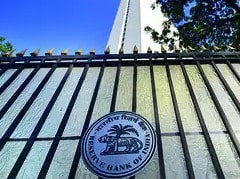
The Reserve Bank of India (RBI) has issued new guidelines for the outsourcing of IT services in the banking sector. The move is aimed at ensuring the safety and security of customer data, as well as improving the efficiency and effectiveness of IT operations.
The new guidelines state that banks must carry out a comprehensive risk assessment before outsourcing any IT services. This assessment should include factors such as the criticality of the service being outsourced, the risk to customer data, and the financial impact of any potential service disruptions.
Banks are also required to establish a clear and well-defined outsourcing policy that covers the entire outsourcing process, from the selection of service providers to the monitoring and management of their performance.
In addition, banks must ensure that their service providers comply with all applicable regulatory requirements and guidelines, including those related to data protection and privacy.
The guidelines also require banks to have a robust vendor management program in place to monitor the performance of their service providers. This program should include regular performance reviews, ongoing monitoring of service levels, and the establishment of clear communication channels between the bank and its service providers.
The RBI has emphasized the need for banks to ensure the safety and security of customer data throughout the outsourcing process. Banks are required to put in place appropriate controls to protect customer data, including data encryption, access controls, and regular data backups.
The new guidelines are part of the RBI’s ongoing efforts to improve the safety and security of the Indian banking system. The RBI has been working to strengthen its regulations and guidelines related to IT and cyber security in recent years, in response to the increasing threat of cyber attacks on the banking sector.
The guidelines have been welcomed by the banking industry, with many banks stating that they are already in compliance with the new requirements. Some experts, however, have raised concerns about the potential cost implications of the new guidelines, particularly for smaller banks and financial institutions.
Despite these concerns, the RBI has emphasized the importance of the new guidelines in ensuring the safety and security of the banking system. The RBI has stated that it will continue to monitor the implementation of the guidelines and take appropriate action if necessary to ensure compliance.
The RBI’s guidelines come at a time when the Indian banking sector is increasingly reliant on technology and IT services. The COVID-19 pandemic has accelerated the adoption of digital banking services in India, with more customers using online and mobile banking services to conduct their banking transactions.
This increased reliance on technology has also led to an increase in the risk of cyber attacks and other security breaches. The RBI’s guidelines are aimed at addressing these risks and ensuring that the Indian banking system remains safe and secure.
In conclusion, the RBI’s guidelines for the outsourcing of IT services in the banking sector are a positive step towards improving the safety and security of the Indian banking system. The guidelines emphasize the need for banks to carry out a comprehensive risk assessment before outsourcing any IT services and to establish a clear and well-defined outsourcing policy.
Banks are also required to ensure that their service providers comply with all applicable regulatory requirements and guidelines, and to have a robust vendor management program in place to monitor the performance of their service providers.
While some concerns have been raised about the potential cost implications of the new guidelines, the RBI has emphasized the importance of ensuring the safety and security of the banking system. The guidelines are part of the RBI’s ongoing efforts to strengthen its regulations and guidelines related to IT and cyber security, and are a welcome development for the banking industry in India.
Read More on RBI









